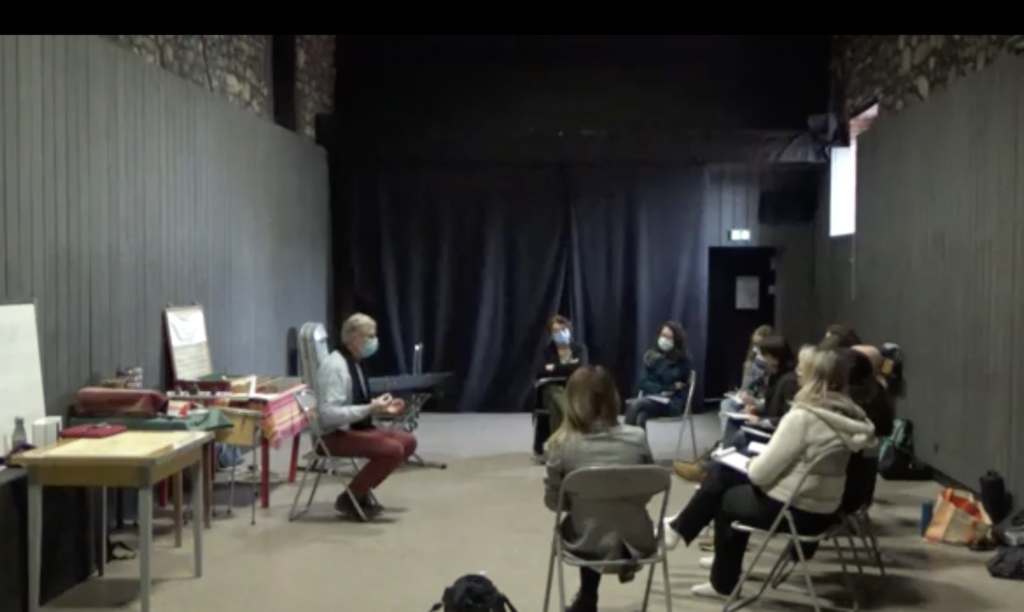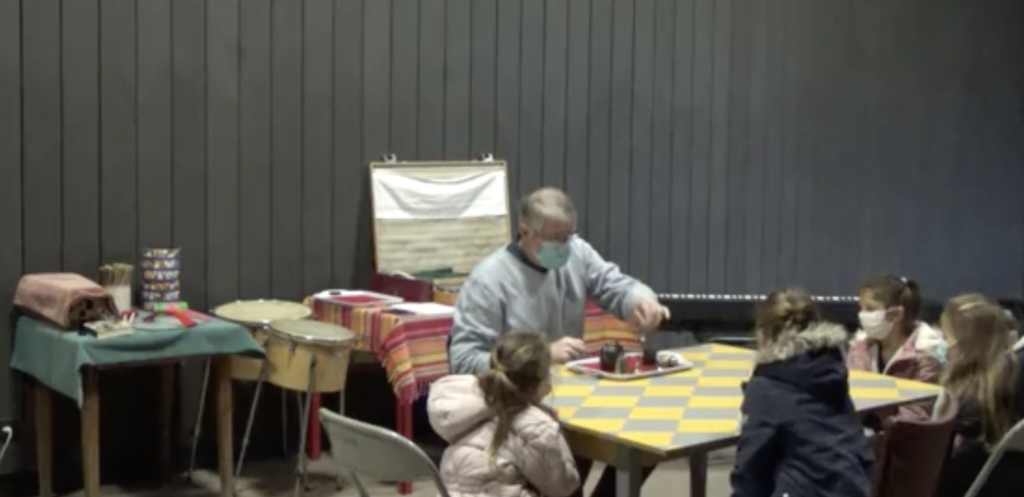A new kind of awareness
The Willems® pedagogy is little known for its instrumental extensions, although it underpins the entire progression of musical initiation to solfeggio.
The current trend in music schools and conservatories is to do away with music theory and replace it with collective instrumental practice. School orchestra projects of the “DEMOS” type are developing in France, often inspired by the experience initiated in Venezuela with “El Sistema“, and adapted in various countries such as Brazil with “NEOJIBA” in Salvador de Bahia.
It is of great interest to be associated with such approaches. Because what is at stake is what music can bring to children, and particularly to children who are far from culture.
These proposals all have this social concern of bringing music to all children, which is also the objective of Edgar Willems’ proposal.
It is in this spirit of collaboration that two awareness-raising days were held on 14 and 15 February in France, and it is in the same spirit that we are preparing the Brazilian Congress in Salvador de Bahia from 25 to 29 July 2022 with NEOJIBA.
Awareness raising in France
Led by Béatrice Chapuis-Westphal and Christophe Lazerges, two days of presentation of the Willems® pedagogy were organised by the EIMD – Ecole Intercommunale de Musique et de Danse de St Symphorien de Lay, in conjunction with the Roanne Conservatory, for music teachers in the Loire department.

Eleven teachers took part, all instrumentalists, in charge of the musical education of the pupils of these structures from the collective instrumental practice.
This new orientation of the music schools, which is generally well accepted by the teachers, nevertheless raises questions of adaptation in relation to their traditional teaching practice.
The Willems® International Federation was asked to provide them with concrete tools to help them in their daily work. The speakers therefore started from the objectives of instrumental practice, leading to and justifying a musical preparation of the pupils beforehand.
This analysis, supported by examples and practice, allowed the teachers present to better evaluate the needs of their students and to orient their pedagogical research in unknown directions, in particular by taking up basic elements of musical education to complement their teaching.

The first day began with a 1st level music initiation lesson given to 4 children aged 6 and 7. This introduction to the Willems® pedagogy was particularly appreciated by the teachers, who recognised themselves in this situation and gave them confidence in the relevance of what was presented to them.
Then, each part of a music lesson on the instrument was put into perspective with this introductory lesson, namely according to Edgar Willems :
- Playing by ear: repertoire, listening quality, singing, expression…
=> aural and vocal development: sensoriality
=> Rhythmic development: plasticity, rhythmic modes, polyrhythm and independence of the hands… - Playing by Reading a prima vista : relation notes/sounds, and not notes/keys, automatism of the names of the sung notes, preparation of the inner hearing…
=> Auditory and vocal development: awareness of sound movement - Playing by Memory: the different memories involved, the progressive development of memory, global memory, analytical memory, inner hearing…
=> aural and rhythmic development: importance of the expressive dimension which favours the memory(s). - Improvisational play: it is by improvising that we learn, and not when we “know” that we can start to improvise. Improvisation is the best way of appropriating the language of music.
=> The various modes of improvisation: rhythmic, melodic, harmonic
=> The relationship between the instantaneous instrumental gesture and its resonance with the inner hearing, more or less conscious, which leads to and allows the evolution of the discourse, even its organisation.
=> In all the parts of a musical initiation lesson, improvisation is solicited.
The second day was devoted to the introduction of reading and writing, and to the overall preparation for the instrument, the programme of the 3rd level “Pre-sologetic and Pre-instrumental”.
It was also an opportunity to answer the questions of the teachers as closely as possible to their practice.
These two days made it possible to show the relevance of the reflection and experience of the Willems® pedagogy in this particular context.
